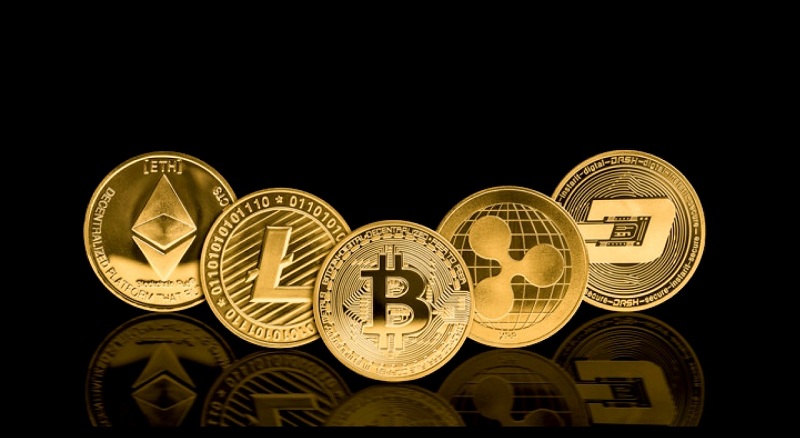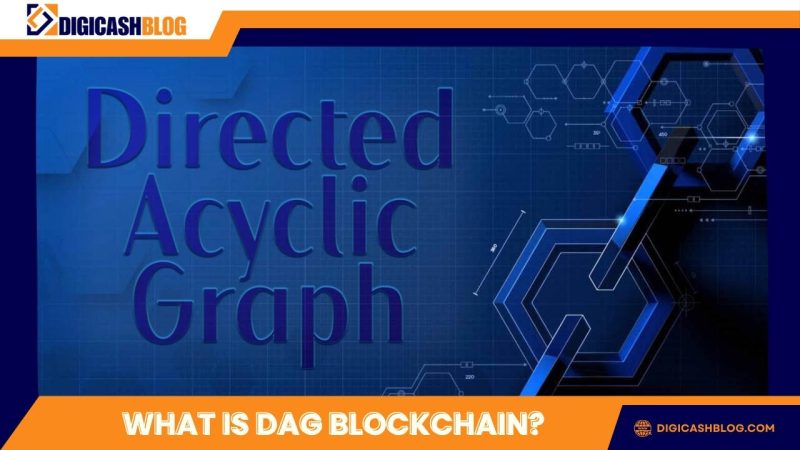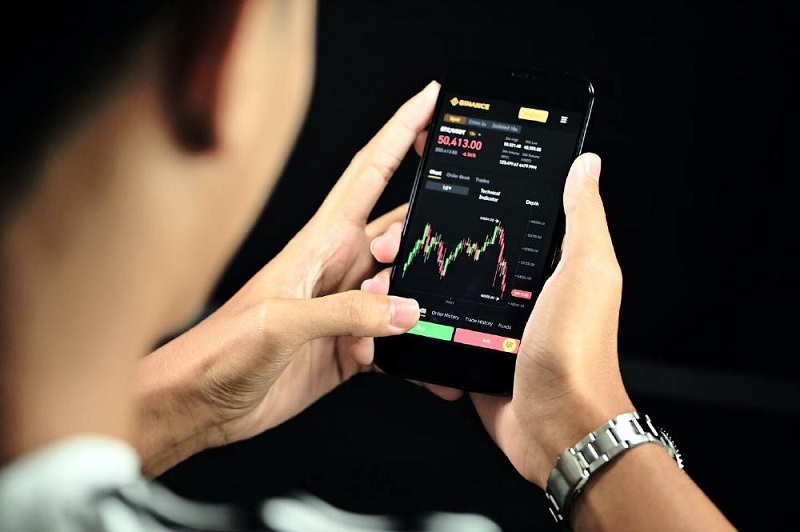Diving into the world of crypto, you’ve likely crossed paths with what are utility tokens? Let’s break it down: These digital tokens aren’t just lines of code—they’re your access key to the vast features and services within decentralized apps (dApps). They’re more than currency; they’re like VIP passes to blockchain-based functions custom-fit for the digital age. Stick around as we unravel these functional gems, explore their use cases, and dig into their role within the token economy. Whether you’re a dApp devotee or a token rookie, understanding utility tokens is your ticket to navigating the crypto landscape with confidence.
Demystifying Utility Tokens: The Backbone of dApp Functionality
Exploring the Utility Token Definition
What are utility tokens? They are special coins used on blockchain. You use them to buy services, vote, or play games on a platform. Think of them like tokens at an arcade. But these tokens can do much more. They power apps on the blockchain. These are called decentralized apps, or dApps for short.
So, how do utility tokens work? They are built using smart contracts. Smart contracts are like rules written in code. They run on blockchain and make sure things happen as they should. When you use a utility token, you’re following these rules to get something done, like sending data or paying for a file.
Utility tokens are not for profit. They’re different from security tokens, which represent an investment. Think of security tokens like a tiny slice of a company. Investing means you hope they will grow in value. The purpose of utility tokens is more about use than making money.
Utility Token Use Cases and Practical Applications
Now, let’s look at utility token use cases. How are they useful in real life? One example is online voting. Some platforms let you use tokens to vote on changes. It’s like a show of hands, but digital and secure.
Utility tokens also let you play games. In the games, the tokens can buy items or skills. It’s like having a special card in a board game that lets you do more.
What about buying things? Yes, utility tokens can do that too. They can buy storage, art, or even music on the blockchain. They can be used to enter spaces where you learn or chat with others.
The coolest part is creating and trading tokens. Anyone can create a utility token. And you can trade them on exchanges. But remember, always think before you trade. It takes skill and knowledge.
Talking about benefits of utility tokens, they make things fair. They often cost less to move around, unlike regular money. And they can give rewards. For example, some tokens give you cheaper fees if you use or hold them a lot.
Before you buy, know this: creating utility tokens must follow rules. There are laws. And not all tokens are the same. Legal aspects of utility tokens can be complex. It’s good to learn them first.
Investing in utility tokens is adventurous. There’s risk, but also the thrill of new tech. If you’re smart about it, utility tokens can open new doors. But you have to learn how they fit in the big picture of blockchain.
Utility tokens are more than just money. They’re keys to services and part of how blockchain changes our world. So, the next time someone asks, “What’s the big deal about utility tokens?” You can say, “They’re tiny tech marvels that let us do amazing things!”
Tokenomics and Legal Landscape: Understanding Utility Tokens
The Tokenomics of Utility Tokens
So, what’s a utility token? It’s like a special coin you can use in certain apps on the blockchain. Just like tokens at an arcade, you use them to play games or get things. Only here, it’s digital stuff, like getting to use an app or voting on decisions. Now, folks are making these tokens for users to do cool stuff within these apps.
Now, imagine you create an app. You want users but also need a way to keep the lights on. So you make tokens that offer neat benefits to your users. Perhaps they get a discount or can do things others can’t. This is the heart of what these tokens are about. They’re not just coins; they hold value for real things people can do online. They make the app go round.
But how do these tokens get value? It’s a bit like regular money; it’s worth what people will trade for it. The more useful the token for services, the more valuable it becomes. It’s all about supply and demand. If many want the token, the value can go up. This is part of the tokenomics or how these tokens work in the economy.
Creating utility tokens is clever, too. They often start in an Initial Coin Offering (ICO). Think of it like a big online event where the app folks sell their new tokens. People buy them, betting that the tokens will be worth more later as the app grows.
Navigating the Legal Aspects of Utility Tokens
But wait, are these tokens legal? Yep, but it’s tricky. The law sees them differently than regular money. In many places, they’re not seen as investments like stocks. That’s because they’re used in the app. But if they’re used to make money, like stocks, they might be called “security tokens.” This matters because different rules apply.
Some worry, “Can I get in trouble with these tokens?” The answer lies in where you are. Different countries have different rules. In the USA, the Securities and Exchange Commission (SEC) watches over these. They say if you’re buying tokens hoping they’ll make you money, you’re entering investment territory. They call this a security, and different laws kick in.
So before you dive in, know this world well. If you want to buy these tokens, learn about them first. See what rights you get and read up on the rules where you live. And remember, changes happen a lot, so stay sharp.
In short, utility tokens are like special game pieces in the digital world with their own rules. They can be super handy and can even make a bit of money if their value goes up. Just make sure to play by the legal rules and you’ll enjoy the fun they bring to the blockchain playground.
Utility Tokens in Action: Accessibility and Beyond
How Do Utility Tokens Work within Ecosystems
Think of a utility token like a key, a very special key. It opens doors to digital worlds on the blockchain. In ecosystems, these tokens let you take part, interact, and use services. They work by giving you access that you wouldn’t have otherwise. This could mean playing a game, using software, or voting on important changes.
You see, when someone creates a dApp, they make utility tokens for it. These dApps use smart contracts. They’re like deals set in digital stone. When you use utility tokens, you’re saying to a smart contract, “I want in, let’s do this.” It can unlock features, let you make and vote on proposals, or other cool things.
For example, a dApp for an online market would need a token. This token would let you buy things, sell your own goods, or get special deals. As a user, you’d need to have some of these tokens to make things happen.
Companies may start by sharing their tokens through an initial coin offering, or ICO. This is when they first sell their token to the public. People buy them hoping to use them later or to make money when their value goes up.
In the crypto world, many of these tokens follow the ERC20 standard. This means they play nice with other Ethereum-based tokens. It helps them work together and keeps things safer too.
Accessing Services with Utility Tokens: A User’s Guide
To use a service with utility tokens, first, you need to get some. You can buy them during an ICO or on a crypto exchange. Think of buying these tokens like getting tokens at an arcade. You need them to play the games. After buying, you store them safely in your digital wallet.
Here’s a step-by-step on using them:
- Find the service you want to use. Let’s say it’s a streaming platform.
- Get the right tokens. Buy tokens that the platform uses.
- Add them to your wallet. Move your new tokens to your digital wallet.
- Use them on the service. Pay with tokens to watch your favorite shows.
When you spend utility tokens, you’re not just buying things. You’re also helping the platform. Using these tokens can make the service run better and help other users too. It’s a win-win!
People love utility tokens for their benefits. They can speed things up and cut costs. They let you do cool things on a platform. Plus, if the service grows, the tokens might be worth more later. But remember, they’re not like stocks. They don’t give you a part of the company.
With utility tokens, the world of blockchain services opens up to you. You can join new digital adventures, all while using these functional gems. Whether you’re investing, trading, or just curious, utility tokens are key players in the blockchain game. Get to know them, because they’re shaping the future of how we interact online.
Investing in Utility Tokens: Risks and Rewards
Analyzing Utility Token Value and Investment Opportunities
Imagine you find a new tool. It’s handy, and you can use it in many ways. That’s like a utility token in the crypto world. A utility token lets people do things in a digital space, like play games or use services. When you hear “cryptocurrency,” you might think of Bitcoin. But utility tokens are different. They’re part of a blockchain and give you access to services or benefits on that chain.
Why would someone want to buy these tokens? People get them for two main reasons. One, they plan to use them within the digital space they’re made for. Two, they think the tokens will grow in value and they can sell them later for more money. This is investing. It’s like getting a ticket for a ride long before you go to the theme park, betting the ticket price will go up.
When you think of buying a utility token, know this: The token’s worth comes from how useful it is and how many people want it. It’s not just about buying low and selling high.
Let’s break this down, shall we? Say a token lets a person play a game. If the game gets really popular, more people want the token. So, the token’s price could go up because it’s in demand. But if the game loses its charm, the token’s value might drop. It’s like a hot toy at Christmas. In December, everyone wants it and it’s pricey. By January, not so much.
The Future of Utility Tokens: Trends to Watch
Now, let’s peek into the future. What’s next for utility tokens? More and more, we see tokens tied to special projects. These can be art, games, or new services. People use tokens to take part in these cool ideas from all over the world.
A thing called an Initial Coin Offering (ICO) can help start these projects. It’s when a new token is sold to raise money for a project. If the project sounds awesome, lots of people might want to join in. The token might get more valuable.
But what about the rules? They are very important. Each place has its own rules for tokens. You need to know them before you buy, so you don’t get into trouble.
Always keep this in mind: Utility tokens can be risky to invest in. Prices can change fast and be hard to predict. Still, they offer a fun way to join new tech and projects. And for some, the rewards can be big.
So, when you hear about a new token, ask these questions: What is its job? How does it work? Who wants it? What’s the bigger picture for it? And what do the rules say?
Understanding a token’s project, how many people are excited about it, and what the law says, can help you make smart choices. Investing in utility tokens isn’t just about money. It’s about being part of the digital world’s future.
We’ve walked through what utility tokens are and why they matter in dApps today. We looked at their real-use cases and how they can shape the way we access services within different ecosystems. We also peeled back layers of tokenomics and the rules that govern these digital assets. Investing in utility tokens comes with its own set of challenges and potential wins—it’s not a simple game, but it’s one that’s gaining traction.
Thinking about all this, it’s clear: Utility tokens aren’t just digital cash. They’re keys to unlock services and fuel for innovative apps. And while there’s a lot to watch out for, especially with laws and value changes, these tokens are here to stay. They’re part of a fast-moving digital landscape we’re all figuring out together. Keep your eyes open for what’s next, and remember, being informed is your best bet in this ever-evolving space.
Q&A :
What Exactly Are Utility Tokens?
Utility tokens are a type of cryptocurrency specifically designed to be used within a particular blockchain ecosystem. They provide users with access to a product or service that is usually part of a decentralized application (dApp). Unlike traditional stocks, holding utility tokens doesn’t signify ownership or equity in a company but offers the utility of use within its specified platform.
How Do Utility Tokens Differ from Security Tokens?
Utility tokens are not meant to be an investment per se; rather, they serve as a means to use a service or function on a platform. Security tokens, on the other hand, represent an investment into a project with the expectation of profit, derived from the efforts of others. This fundamental distinction affects how the tokens are treated by regulatory bodies; security tokens are often subject to securities regulations, while utility tokens, if properly structured, might not be.
Can Utility Tokens Be Traded or Exchanged?
Yes, utility tokens can often be traded or exchanged on various cryptocurrency exchanges, provided they are supported by the exchange. The liquidity and value of utility tokens can fluctuate based on demand for the service they provide and the overall performance of their platform, as well as broader market conditions.
What Are Some Common Uses for Utility Tokens?
Utility tokens can be incredibly versatile. They can be used to redeem services, access platform-specific features, cast votes within a decentralized organization, or act as a form of payment within their ecosystem. Examples include tokens that allow cloud storage access, tokens that you can redeem for computing power, or tokens that validate and execute smart contracts.
Are There Risks Associated with Using or Investing in Utility Tokens?
As with any cryptocurrency, there are risks associated with using or investing in utility tokens. They are subject to market volatility, regulatory changes, and the potential failure of the underlying platform or project they are associated with. Before engaging with utility tokens, it is crucial to conduct thorough research and consider the specific risks involved.






